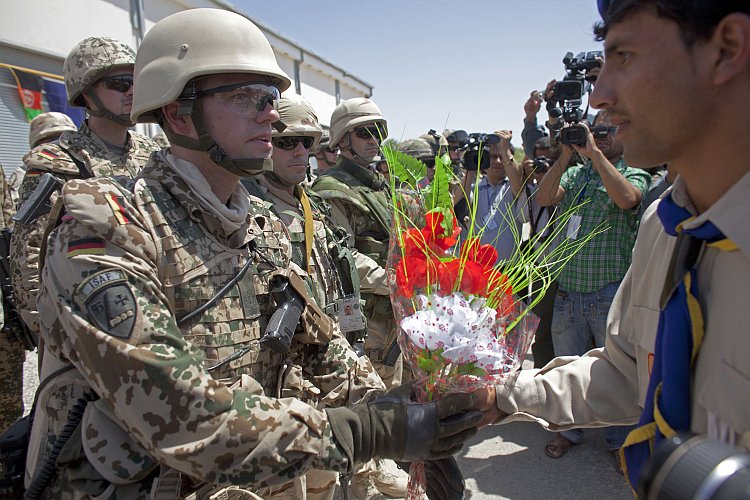When NATO leaders meet in Chicago this month they will largely be focused on the withdrawal of NATO forces from Afghanistan and the alliance’s weakened military capabilities.
But with Europe deep in an economic crisis and the United States pivoting its focus toward Asia-Pacific, concerns have been raised that a strong and effective institution for maintaining stability could be sidelined.
“It is important to keep in mind NATO represents the primary institutional infrastructure of the West,” Charles Kupchan, professor of International Affairs at Georgetown University told the Senate Foreign Relations Committee hearing on Thursday. If Europe and the United States go their separate ways we are in for a very bumpy ride, he said.
NATO, formed in 1949, binds North American and European nations in an agreement of collective defense, meaning an attack on one member, is considered an attack on all members and should be responded to jointly.
The 9/11 attacks triggered the only instance where this has been evoked, when NATO troops were deployed to Afghanistan.
Most recently, NATO enforced the no fly-zone over Libya. NATO troops have also been deployed in a range of other missions too including protecting shipping lanes from Somali pirates or training Iraqi security forces.
In the run-up to the May 19-21 summit of leaders in Chicago, NATO Secretary-General Anders Fogh Rasmussen outlined the three major issues to be addressed: Afghanistan, NATO military capabilities, and meeting future challenges.
“But Chicago will not be the end of our efforts only the start. We all have much work to do to ensure NATO remains strong and capable by 2020 and beyond.”
Power Balance Changed
The future challenges are many, says Kupchan. NATO countries were aligned by shared democratic values and the alliance was formed at a time when Atlantic nations had primacy, representing the greater wealth of the globe. That has changed, however, with NATO slipping from representing 70 percent of global gross domestic product, to 50 percent, and now heading toward 40 percent he said.
The emergence of new powers with global aspirations and territorial claims is also making the world more complex, volatile, and difficult to negotiate. NATO must now work with countries that do not share the same values but are equally or more powerful, Kupchan told the congressional hearing.
“How can we preserve the rules based systems Europe and the United States has built since World War II as the circle widens and more players join the table?” he asked.
Earlier this year, the United States announced that it would cut back its military presence in Europe. Two Army brigades, constituting some 7,000 troops would be withdrawn from its bases, the U.S. Defense Department said.
European countries, struggling with a perilous economic crisis have also shown little appetite to supplement U.S. forces or to divert much needed funds to their own defense budgets.
Kupchan said the downturn provides an opportunity, not only to build sleeker, smarter, and more flexible forces, where they can get “more bang for their bucks,” but also to forge stronger ties between North America and Europe in defining those forces.
“We can help them rationalize,” he said.
NATO’s focus would be better served if directed away from deployment and more toward helping emerging nations develop their own regional architecture as it had done in the Atlantic community, he said. “That is, deepen integration and understand what it means to work together and gradually build the solidarity that preserves regional peace.”
In a measured reference, not only to Europe, but also the polarization of Washington, Kupchan said Western countries were “stumbling” and “being pulled apart.”
It was imperative Western countries “get their own houses in order” he said noting that NATO was “only as good as it members states.” “We have a lot of work to do on that front,” he said.
The Epoch Times publishes in 35 countries and in 19 languages. Subscribe to our e-newsletter.






